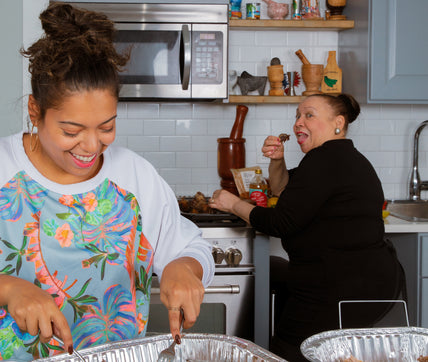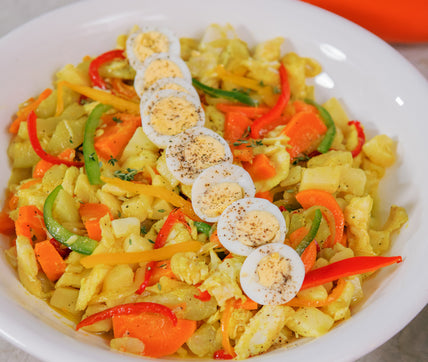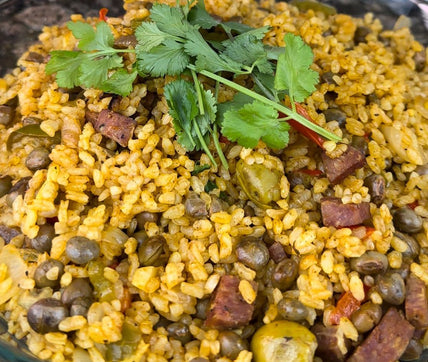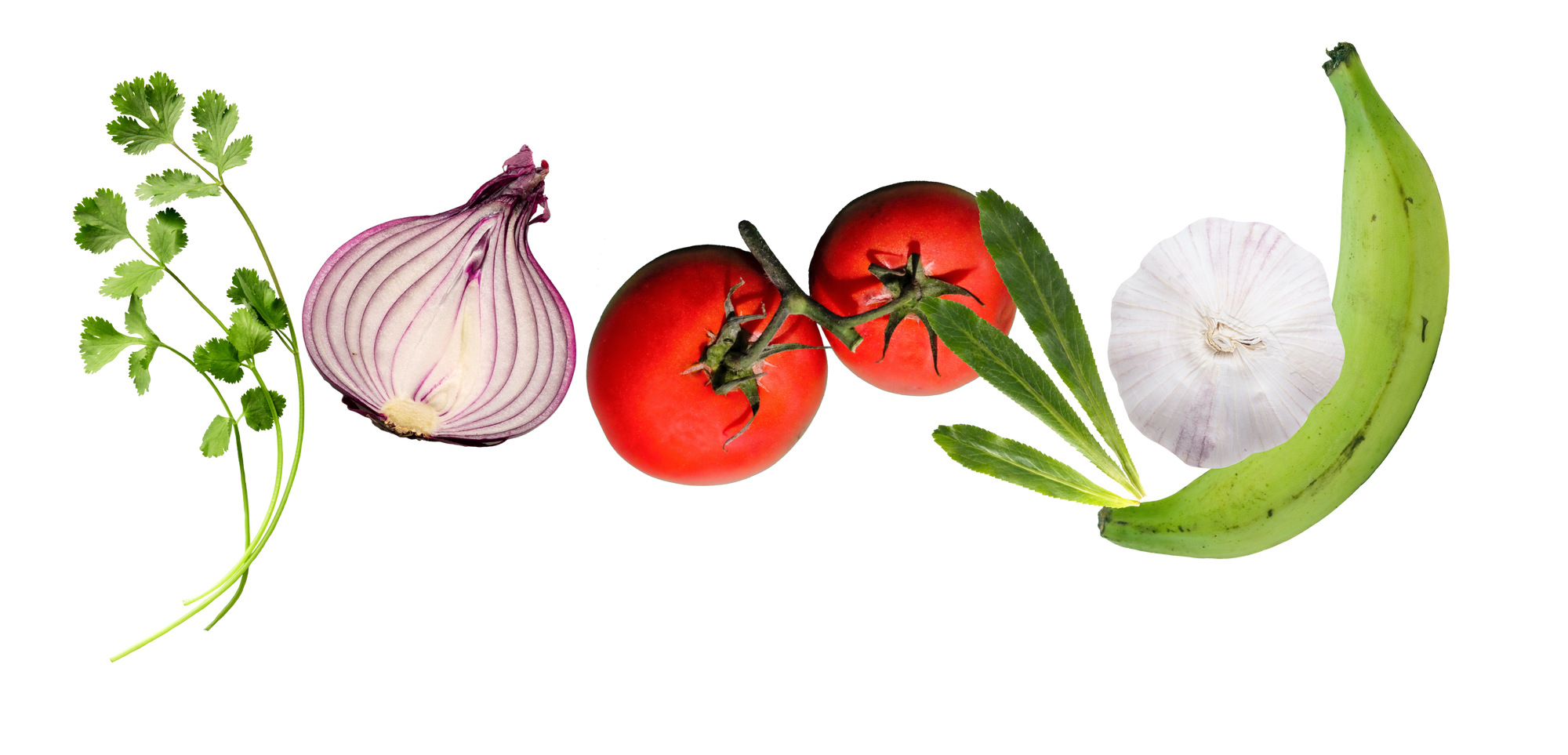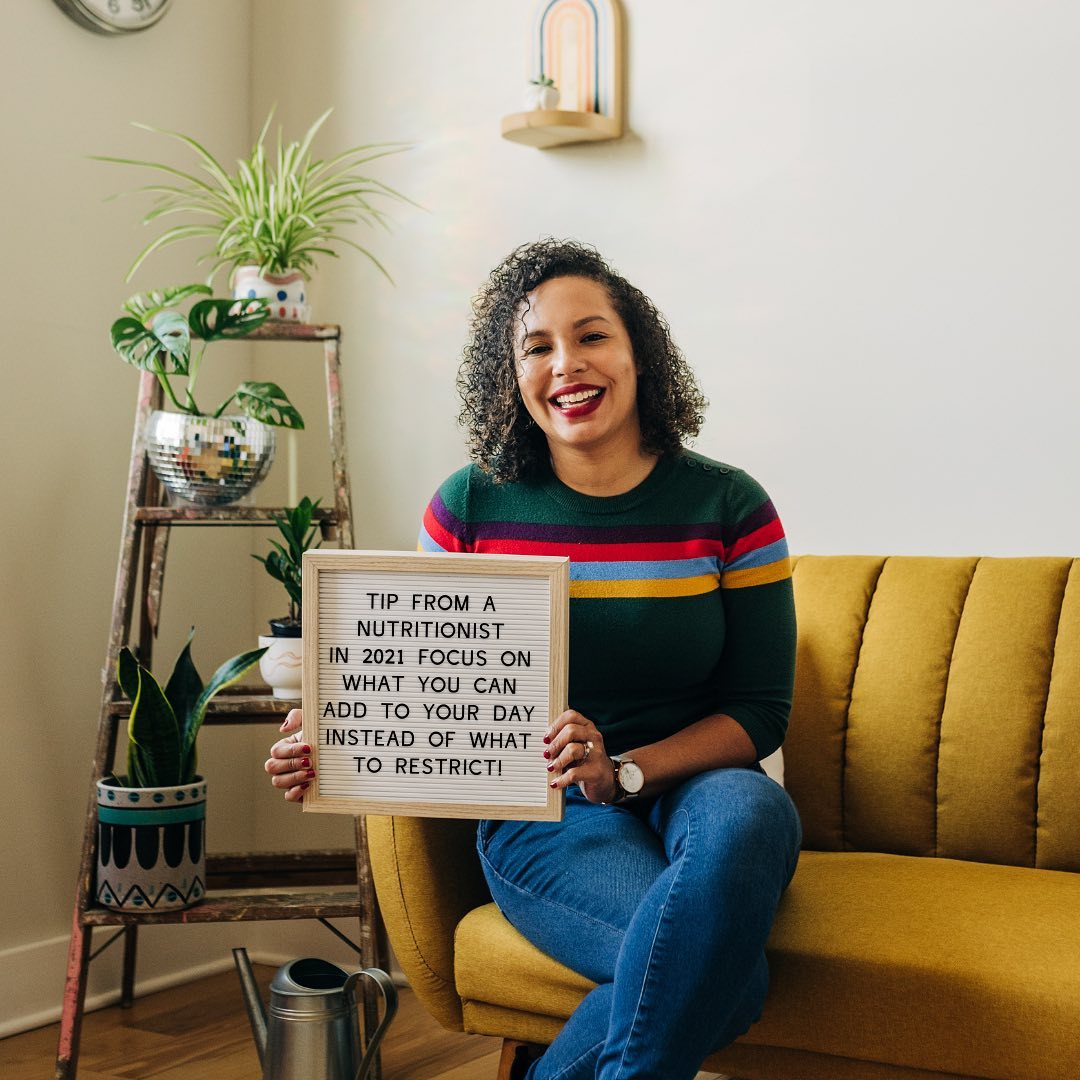
How to Prepare Your Immune System For Spring
Here are seven ways to prepare your immune system for the change in season with nutritionist Dalina Soto!
By: Johanna Ferreira | @cup_of_johanna
Welcome to Wellness Ways with Loisa! This season we plan on highlighting and sharing stories on some of the many ways Latinx folks are prioritizing their health during this brutal pandemic. We plan on exploring and addressing some of the unique issues that are affecting our communities while providing information, tips, remedies, and solutions to help you thrive and remain joyful during this unique and challenging time…
While the official start of spring is just days away, that doesn’t necessarily mean that cold weather is behind us. As the temps continue to go up and down, our bodies can actually become more susceptible to getting sick, which is the last thing anyone wants during this pandemic. Continuing to follow the CDC guidelines — even if you're fortunate enough to be vaccinated — are still crucial moves to make. But nourishing our bodies with healthy foods, resting, and reducing our stress levels are also just as important when it comes to protecting our immune systems. In an effort to keep our bodies healthy and strong enough to fight off colds or viruses, here’s a look at a few things you can do to prepare your body as we transition from winter to spring.
~ Take Vitamin C ~
“The number one thing people need to understand is that you can’t actually “boost” your immune system. That’s not exactly how it works,” says Dominican-American anti-diet nutritionist Dalina Soto. “People are always looking for a fast solution but if you have an auto-immune condition like Lupus for instance — that’s a disease. When you have an auto-immune condition it means that your immune system is hyper-active and your immune system is going to function the way that it’s going to function. But the right nutrition can help it run its best.” Soto recommends incorporating Vitamin C into your diet preferably through fresh fruits if you can rather than just through supplements. Think citrus fruits like oranges and mandarins. Chili peppers, kale, kiwis, broccoli, brussel sprouts, lemons, strawberries, and papaya are also high in Vitamin C. “Don’t wait until you’re sick to take Vitamin C. This should be part of your everyday,” Soto adds.
~ Have Enough Calories ~
“If you’re in a caloric deficit right now to intentionally lose weight, just keep in mind that your body reads that like you’re going into starvation mode. As a result, it’s going to lower your metabolism and lower everything that your body needs to fully function because it’s trying to conserve energy,” Soto says. “You need to be able to have enough energy for your body to function and fight off diseases. Everyone’s body is different so regardless of what your goal is try to stay in tune with what your body needs or is asking for. If you’re feeling tired, hungry, and experiencing increasing food thoughts, that might be your body's way of telling you that you actually need to eat more.” Make sure you’re eating enough nutritious meals that are going to sustain you and give you the energy that you need to get through the day.
~ Eat a Well-Balanced Diet ~
A well-balanced diet doesn’t just mean meat protein and leafy greens. Soto encourages folks to not steer away from carbohydrates or grains. She also doesn’t want people to feel like they can’t enjoy their cultural foods. If you’re Dominican or Caribbean and enjoy root vegetables like plantains, batata (sweet potato), yucca, or yautia don’t feel like you automatically need to eliminate those from your meals. If you’re Central American and grew up eating corn-based foods like tortilla — embrace that.
“It’s important to make sure you’re getting a variety of nutrients. You can’t just be eating one thing. When you cut out a major food group like carbs for instance, you’re cutting out a major part of your nutrition,” Soto says. “Having balance is making sure you're eating enough fruits and vegetables. It’s making sure you’re having enough protein whether you’re getting it from animal products or it’s plant-based. You need to have a variety throughout the day because each macro — each major food group — is going to give us specific nutrition than our bodies need. In the United States we fortify a lot of our foods. We fortify a lot of our grains. So if you’re going Keto for instance, you’re actually missing out on a lot of nutrition. You’re missing out on a lot of fiber. You’re missing out on a lot of vitamins that are found in carbohydrates such as B complex vitamins and Vitamin A. We want to make sure we’re getting a wide variety of food every day because only having green salads and drinking smoothies isn’t going to cut it.”
~ Reduce Inflammation ~
There are a number of ways we can reduce inflammation in the body. One of the ways we can do that is by incorporating anti-inflammatory foods into our diet like turmeric. You can add Loisa Organic Turmeric to your foods, smoothies or teas. Loisa Organic Adobo also includes organic turmeric along with organic garlic, black pepper, oregano and sea salt. Fatty fish (like salmon, tuna, mackerel, anchovies and sardines), leafy greens (like spinach, kale, and collard greens), avocados, green tea, tomatoes, berries (like strawberries, blueberries, and cherries), nuts (including unsalted almonds and walnuts), and extra virgin olive oil are also known for their rich anti-inflammatory properties.
But Soto also reminds us that reducing stress is actually one of the best ways to reduce inflammation in the body.”Cortisol is one of the main causes of inflammation in the body and food isn’t going to necessarily help you with that. The goal is to try to reduce stress as much as possible. That’s always my top anti-inflammatory tip,” she says. “You have to do things throughout the day that are going to help you break the stress cycle in order to reduce inflammation. Remember that it is normal for our bodies to have a certain degree of inflammation. We’re never going to be able to rid our bodies of it completely. But we also shouldn’t be living off of cortisol and experiencing fight or flight all day long.”
~ Prioritize Rest ~
Soto highly suggests focusing on hydration, rest and sleep — making sure you’re getting enough of it. “The recommendation is 6-8 hours of sleep but your body typically knows which of those hours is enough for you. It’s very important to pay attention and understand what your body needs by being in tune with it,” she says. “Sleeping and taking time to rest whether it’s taking physical rest days after weight training or finding time in the day to decompress and get off all your tablets is important because being in cortisol all day long is not good for your body. You need to rest to build muscle but you also need to rest to clear and calm your mind. You have to look at things holistically. We need to stop focusing on these single-minded tunnels.”
~ Pay Attention to Your Gut Health ~
There’s a reason why nutritionists and dietitians are constantly preaching about probiotics and prebiotics and that’s because gut health is crucial to your overall health. Good bacteria in the gut helps us to properly break down foods and aides in healthy digestion. It’s important to either incorporate foods that contain probiotics and prebiotics or incorporate probiotic and prebiotic supplements into our diets. But be weary of extreme cleanses or diets that can actually be damaging to the stomach lining. “What happens usually is that people want to do crazy detoxes or take laxatives and all these intense forms of dieting clean out both the bad bacteria and the good bacteria that you actually need because there’s no way for your body to differentiate one from the other,” she says. “I’ve encountered a lot of folks who think they have IBS or chronic gut issues, when a lot of the time they just aren’t nourishing their bodies or are constantly doing things that are eliminating their good gut bacteria growth. It’s important to know that bacteria comes from eating whole and nourishing foods all day. As you break down foods, your good bacteria is going to flourish.”
~ Get Some Movement In ~
Studies have shown that movement can actually aid in strengthening and supporting our immune systems. If hitting up the gym isn’t actually a feasible option for you right now, getting in some degree of exercise in every day to get your body moving can do wonders on your physical, mental, and even emotional health. Whether it’s getting in 30 minutes of weight-training, yoga, or just taking a 15 minute walk during your lunch hour, some degree of physical activity is important for your overall health. Research shows that it can even help your body respond better to the COVID-19 vaccination.
How about it? Let’s welcome the new season well!
